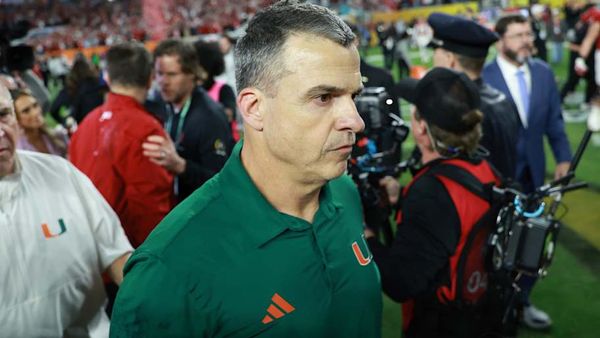
Private equity is by its nature and up and down business, but few tales hold a candle to that of Weijian Shan, the Chinese-born dealmaker who clinched one of the most unlikely and successful deals of the early 21st century. Shan, who never went to high school and labored as a teenager in the Gobi Desert during the Cultural Revolution, would go on to spearhead the first purchase ever of a Chinese bank by any foreign investor, the acquisition of Shenzhen Development Bank (SDB) by an arm of famed buyout firm TPG. The subsequent rescue operation transformed SDB from a basket case into a veritable money machine. The deal—which netted investors 14x their money in 5 years—is the centerpiece of Shan’s new book “Money Machine.”

Although “Money Machine” contains tons of financial detail, it’s also rich in drama and in sketching the personalities with whom Shan built bonds of trust. He draws fascinating portraits of his laconic boss, TPG chairman David Bonderman, of the eventual purchaser, the chain-smoking tycoon who persuaded as much with passion as yuan, Peter Ma, and the courtly, self-described “bank repairman” who fixed SDB, Frank Newman. His literary skills shine in vivid descriptions of Ma’s kingdom-like corporate campus and the jumble of bank headquarters in downtown Hong Kong whose varying designs, he explains, aim at capturing good fortune by best harmonizing the invisible forces of nature.
From the Gobi Desert to TPG
I first met Shan in 2019, just after he’d published his first book, “Out of the Gobi: My Story of China and America.” Then as now, Shan was running PAG, the largest private equity firm in Asia that currently manages $50 billion in assets. During our rendezvous at a Maison Kayser coffee shop on Manhattan’s Upper West Side, I drank a latte, and Shan sipped hot water with lemon. A super-slim jogger, Shan exudes a zen-like calm. The early life story he recounted, and that I later learned much more about upon reading “Out of the Gobi,” was a saga no Wall Street titan could beat for adventure. Born in Beijing––his dad was a customs clerk, his mother a secretary––Shan was just 12 years old in 1966 when he left home and grade school for good. He found himself transplanted in Inner Mongolia’s Gobi Desert as one of the sixteen million youngsters sent to the countryside as an agricultural corps in the Cultural Revolution. In that forbidding landscape, his jobs included such fruitless tasks as trying to grow wheat in barren soil. He also served as a “barefoot doctor” providing medical supplies and care to other soldiers. “What I mainly learned was that the human body has an amazing ability to heal itself, so I practiced as little ‘quack’ medicine as possible,” he told me. In the frigid winters, the recruits burned frozen cow dung for heat. Shan informed this writer that on coming to the U.S., he found it baffling that “bullshit” carried such negative connotations. “You can’t imagine how precious that stuff was to me in the Gobi!” he joked.
In 1980, Shan secured a scholarship to attend an American university. He chose the University of San Francisco over uber-prestigious Stanford because he’d never heard of the latter, and the name for San Francisco in Chinese evoked a classy ring. Shan moved across the Bay to attain a PhD in economics at Berkeley, where the Treasury Secretary Janet Yellen was one of his thesis advisors. In 1993, China’s great reopening beckoned, moving Shan to trade a professorship at the Wharton School for an investment banking gig for J.P. Morgan in Hong Kong. Five years later, he switched to Newbridge Capital, the first global private equity firm, mainly focused on Asia. Newbridge was a joint venture between TPG, headed by PE icon Bonderman, and West Coast investor Dick Blum, whose holdings included Fairmont Raffles hotels and property management giant CB Richard Ellis. (Blum, who died in 2022, was husband of Sen. Dianne Weinstein.)
In 1998, Shan spied a huge prize when the government of South Korea announced that its deposit insurance arm planned on selling bankrupt Korea First Bank. For Shan, what made the program so appealing was that the state was willing to sell a controlling share to a foreign buyer that would give management free rein to fix its reckless lending practices. Newbridge took a 51% stake in KFB, marking the first time a non-Korean group had ever owned one of the nation’s commercial lenders. Over the next several years Newbridge imposed a new culture centered on attracting small and medium-sized businesses and retail customers with excellent credit. The formula transformed KFB from a wreck into a profit spinner; a decade later, the same month it exited SDB, Newbridge would sell KFB to Standard Chartered for $3.3 billion, yielding Newbridge some $1.6 billion, more than three times its original investment.
In 2020, Shan wrote a superb book on the KFB buy and turnaround called “Money Games.” His just-published “Money Machine” is another must-read entry in the “anatomy of a deal” canon. It offers all the elements of an epic: A transaction that helped push the world’s biggest economy towards capitalism, that brought together the biggest names in American private equity and Chinese financial services, Bonderman’s TPG and Ma’s PAIG, and features as its protagonist Shan, a future titan of Asian finance whose skills as a kind of dealmaker-diplomat kept finding common ground in the multiple crises where buyer or selling were ready to quit.

For the full tale of how Shan navigated the intricacies of the Chinese government, transformed the fiefdoms of SDB and recruited former Deputy Secretary of the Treasury Frank Newman to run the enterprise, you’ll have to buy the book. As Bonderman quipped of Newman, who spoke no Chinese, that apparent drawback seemed to work to his advantage: “No one can ask him for favors.” Any deal aficionado will be hooked as Shan walks readers through how following the Great Financial Crisis he slyly negotiated a sale of SDB to Peter Ma’s PAIG for a total of $2.27 billion, fourteen times the original investment, made five years earlier.
Shan bids goodbye to his mentor David Bonderman
Throughout “Money Machine,” Shan praises Bonderman’s instincts and stripped-down management style. Bonderman hated long deal memos. He insisted that his troops write one-page summaries of all the main points that they nicknamed Bonderman Ultimate Statements. Bonderman wanted quick, simple answers to his favorite question, “What’s the deal?” When Shan presented the boss with the terms he’d negotiated with Ma over the phone, Bonderman responded simply, “That works. Now get it done!” Writes Shan, “Bonderman wasted few words. I loved that style, it fitted me perfectly.”
Shortly after the deal closed, Bonderman invited Shan and his wife Bin on for a cruise on the PE legend’s yacht in the South Pacific. One day, he Shan and Bonderman took a small tender boat to do some deep-sea fishing. Shan relates that in all probability, no one else was fishing within many miles of their tiny craft. Shan used the opportunity to tell his mentor that he was leaving Newbridge to start his own fund. Bonderman’s reaction was typically short and to the point. “Well, we should keep up the relationship,” he said.
The parting was a happy one. Shan and Bonderman had teamed to secure a landmark deal that helped send China of the road opening its markets and pocketed huge profits for their investors in the process. Shan would move on to run the biggest PE firm in Asia, PAG. But those moments alone, floating alone with Bonderman in the South Pacific, endure among his fondest memories.







